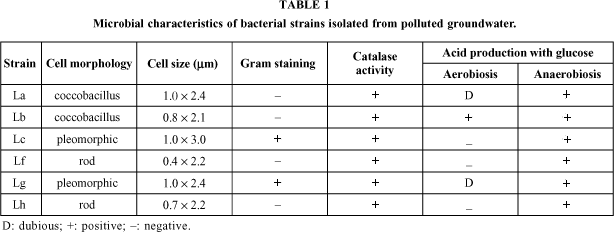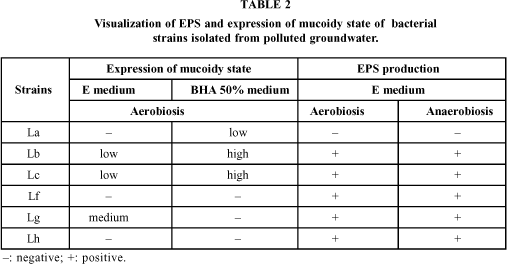A selection of exopolysaccharide (EPS) -- producing bacterial strains was conducted in groundwater adjacent to an old controlled landfill in the City of São Carlos (São Paulo, Brazil). The strains were isolated in P and E media under aerobic and microaerophilic conditions at 25ºC. A total of 26 strains were isolated and based on the mucoid mode of the colonies, 6 were selected and their morphological, physiological and biochemical aspects were characterized. All strains presented pigmentation, ranging from yellow to orange and from pink to salmon, with a shiny glistening aspect in all tested media. Strains Lb, Lc and Lg, which excelled the others with regard to the mucoid mode of the colonies, were selected to be cultured in E medium with alternate sucrose and glucose as carbon sources in anaerobiosis at 25ºC to analyze the production of EPS. Strains Lc and Lg were classified as being of order Actinomycelates, suborder Corynebacterineae. Lg strain was identified as Gordonia polyisoprenivorans and Lc strain did not correspond to a known description and therefore a more detailed study is under preparation. Considering all ecological aspects and the metabolic potential associated with the microorganisms of the environment studied, as well as the capacity to produce pigment and EPS, and the presence of G. polyisoprenivorans, a rubber degrader bacterium, the potential of the groundwater analyzed is evident as a source of microorganisms to be utilized in studies related to environmental remediation.
bacteria; exopolysaccharide; groundwater; landfill



